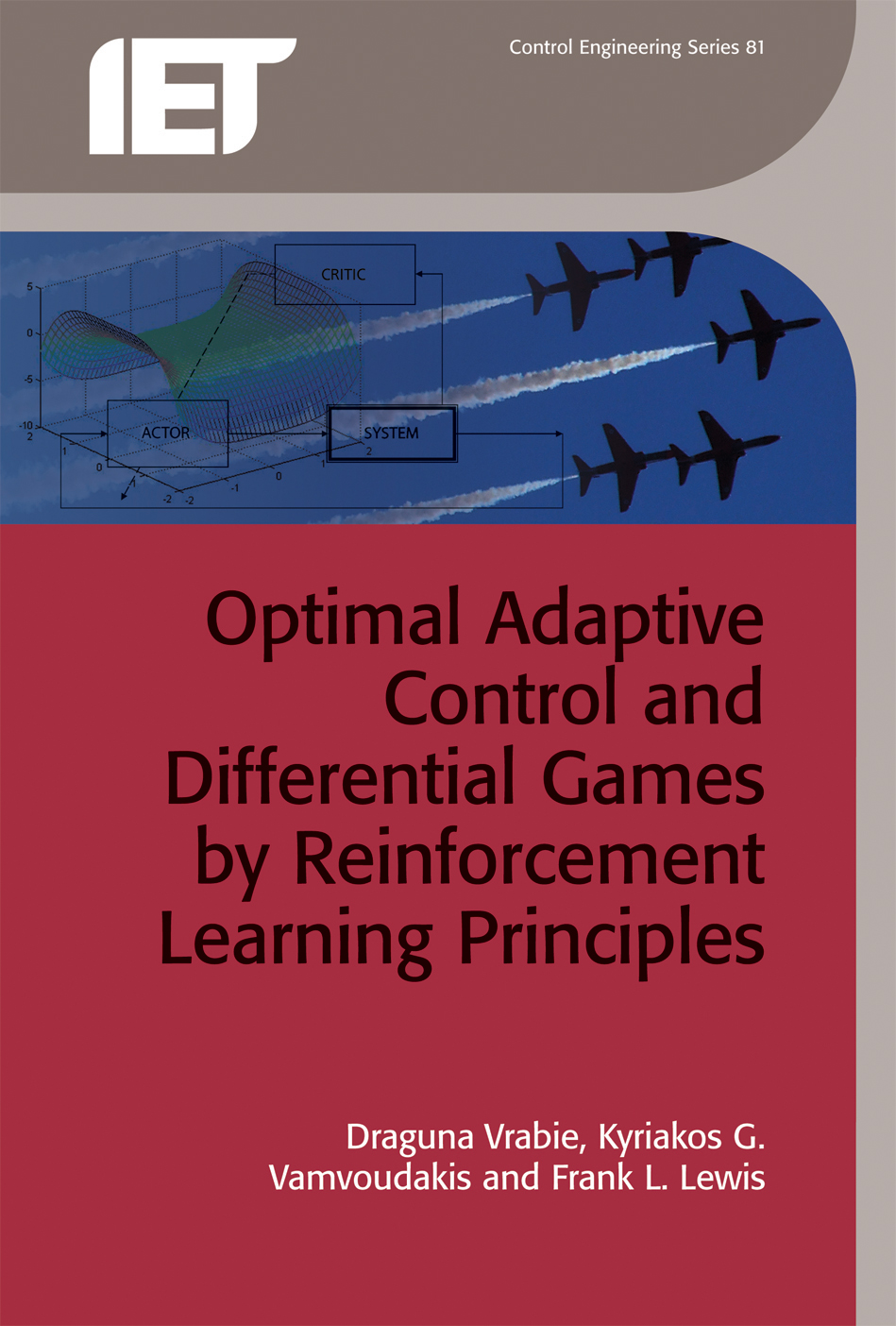- Agricultural Engineering and Technology
- Applied Physics
- Built Environment
- Computing and Networks
- Control, Robotics and Sensors
- Electrical Regulations
- Electromagnetics and Radar
- Energy Engineering
- Healthcare Technologies
- History and Management of Technology
- IET Codes and Guidance
- Manufacturing
- Materials, Circuits and Devices
- Model Forms
- Security
- Telecommunications
- Transportation

Optimal Adaptive Control and Differential Games by Reinforcement Learning Principles
by Draguna Vrabie, Kyriakos G. Vamvoudakis, Frank L. Lewis
This book gives an exposition of recently developed approximate dynamic programming (ADP) techniques for decision and control in human engineered systems. ADP is a reinforcement machine learning technique that is motivated by learning mechanisms in biological and animal systems. It is connected from a theoretical point of view with both adaptive control and optimal control methods. The book shows how ADP can be used to design a family of adaptive optimal control algorithms that converge in real-time to optimal control solutions by measuring data along the system trajectories. Generally, in the current literature adaptive controllers and optimal controllers are two distinct methods for the design of automatic control systems. Traditional adaptive controllers learn online in real time how to control systems, but do not yield optimal performance. On the other hand, traditional optimal controllers must be designed offline using full knowledge of the systems dynamics. It is also shown how to use ADP methods to solve multi-player differential games online. Differential games have been shown to be important in H-infinity robust control for disturbance rejection, and in coordinating activities among multiple agents in networked teams. The focus of this book is on continuous-time systems, whose dynamical models can be derived directly from physical principles based on Hamiltonian or Lagrangian dynamics.
About the Author
Draguna Vrabie is a Senior Research Scientist at United Technologies Research Center, East Hartford, Connecticut.
Kyriakos G. Vamvoudakis is a Faculty Project Research Scientist at the Center for Control, Dynamical-Systems, and Computation (CCDC), Dept of Electrical and Computer Eng., University of California, Santa Barbara.
Frank L. Lewis is the Moncrief-O'Donnell Endowed Chair at the UTA Research Institute, University of Texas at Arlington.
Publication Year: 2012
Pages: 304
ISBN-13: 978-1-84919-489-1
Format: HBK
